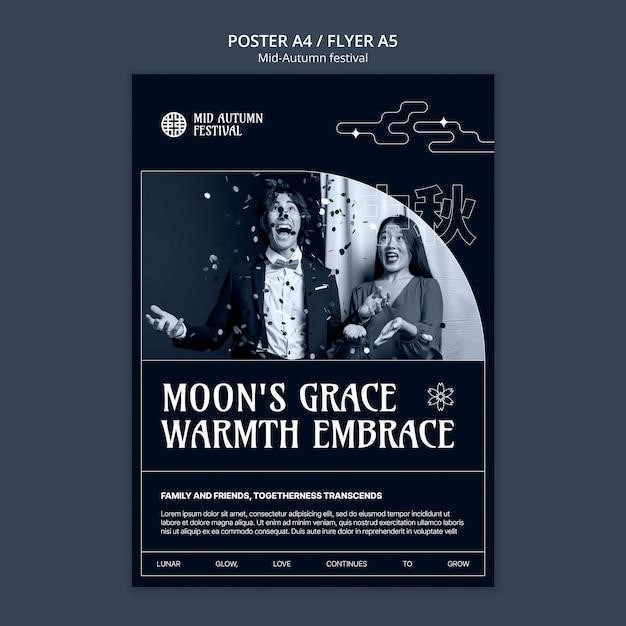World War I Study Guide
This study guide will help you understand the major causes‚ events‚ and consequences of World War I. It will explore the key concepts‚ people‚ battles‚ and events of this pivotal conflict. We will cover topics like nationalism‚ militarism‚ imperialism‚ alliances‚ the assassination of Archduke Franz Ferdinand‚ the ultimatum to Serbia‚ the declarations of war‚ the major powers‚ and the long-term effects of the war. This comprehensive guide will provide you with a thorough understanding of World War I and its lasting impact on the world.
The Causes of World War I
World War I‚ often referred to as the Great War‚ was a global conflict that erupted in 1914 and lasted until 1918. This devastating war involved most of the nations of Europe‚ along with Russia‚ the United States‚ the Middle East‚ and other regions. The outbreak of World War I was not a sudden event but rather the culmination of a complex interplay of long-term factors that had been brewing for decades. These factors‚ often referred to as the “main causes” of the war‚ include nationalism‚ militarism‚ imperialism‚ and a system of complex alliances. Understanding these underlying causes is crucial to grasping the events that led to the outbreak of the war and its profound impact on the world.
Nationalism
Nationalism‚ the fervent love for one’s country and the desire for national independence and self-determination‚ played a pivotal role in the lead-up to World War I. In the early 20th century‚ Europe was a patchwork of empires and nation-states‚ each vying for power and influence. This intense nationalistic fervor fueled rivalries and tensions‚ particularly in the Balkans‚ where various ethnic groups were struggling for independence from the Austro-Hungarian Empire. The assassination of Archduke Franz Ferdinand‚ heir to the Austro-Hungarian throne‚ by a Serbian nationalist in 1914‚ was a direct consequence of this intense nationalist sentiment. The assassination sparked a chain reaction of diplomatic crises and ultimately led to the outbreak of the war. Nationalism‚ therefore‚ acted as a potent catalyst‚ pushing European powers towards conflict and ultimately contributing to the outbreak of World War I.
Militarism
Militarism‚ the glorification of military strength and the belief that a nation’s power is measured by its military might‚ was another major contributing factor to the outbreak of World War I. In the years leading up to the war‚ European powers engaged in a relentless arms race‚ building up their armies‚ navies‚ and arsenals of weapons. This arms race was fueled by a combination of nationalistic pride‚ a desire for power and prestige‚ and the belief that a strong military was essential for national security. The rapid advancements in military technology‚ such as the development of machine guns‚ tanks‚ and poison gas‚ further fueled the militaristic fervor. The constant build-up of military forces created a climate of fear and suspicion‚ making it increasingly difficult to resolve diplomatic disputes peacefully. Militarism‚ therefore‚ played a crucial role in escalating tensions and ultimately contributing to the outbreak of World War I.
Imperialism
Imperialism‚ the policy of extending a nation’s power and influence through colonization‚ economic domination‚ or military force‚ played a significant role in the tensions leading up to World War I. European powers‚ driven by a desire for resources‚ markets‚ and strategic advantage‚ competed fiercely for colonies in Africa‚ Asia‚ and the Pacific. These colonial rivalries often led to conflicts and strained relations between European nations. The scramble for colonies created a web of complex alliances‚ fueled nationalist sentiments‚ and intensified competition for power and prestige. Imperialism‚ therefore‚ contributed to the underlying tensions that made a major war in Europe more likely. The desire for colonies‚ the competition for resources‚ and the control of overseas territories all contributed to the growing sense of rivalry and mistrust among European nations‚ ultimately setting the stage for the outbreak of World War I.

Alliances
The intricate network of alliances that existed in Europe before World War I played a crucial role in escalating a regional conflict into a global war. The two main alliance systems were the Triple Alliance and the Triple Entente. The Triple Alliance‚ formed in 1882‚ consisted of Germany‚ Austria-Hungary‚ and Italy. The Triple Entente‚ formed in 1907‚ consisted of France‚ Russia‚ and Great Britain. These alliances were based on mutual defense agreements‚ meaning that if one member of an alliance was attacked‚ the other members were obligated to come to its aid; The alliances created a domino effect‚ where a conflict between two nations could quickly draw in others‚ leading to a large-scale war. When Austria-Hungary declared war on Serbia in 1914‚ the alliance system triggered a chain reaction‚ leading to the involvement of major European powers‚ including Germany‚ France‚ Russia‚ Great Britain‚ and eventually the United States. The complex web of alliances effectively turned a local conflict into a global war‚ making it one of the key factors in the outbreak of World War I.
The Outbreak of War
The assassination of Archduke Franz Ferdinand‚ heir to the Austro-Hungarian throne‚ on June 28‚ 1914‚ in Sarajevo‚ Bosnia‚ served as the immediate catalyst for the outbreak of World War I. The assassination‚ carried out by Gavrilo Princip‚ a Serbian nationalist‚ triggered a chain of events that quickly escalated into a global conflict. Austria-Hungary‚ seeking to punish Serbia for its alleged involvement in the assassination‚ issued an ultimatum to Serbia demanding the suppression of nationalist groups and an investigation into the assassination. Serbia‚ although willing to meet some of the demands‚ refused to accept all of them‚ prompting Austria-Hungary to declare war on July 28‚ 1914. The declaration of war triggered a series of events that quickly drew other European powers into the conflict. Germany‚ a close ally of Austria-Hungary‚ declared war on Russia‚ which had mobilized its troops in support of Serbia. France‚ bound by a treaty with Russia‚ declared war on Germany. Great Britain‚ which had an alliance with Belgium‚ declared war on Germany after Germany invaded Belgium. The complex web of alliances and escalating tensions ultimately led to the outbreak of World War I‚ marking a turning point in global history.
The Assassination of Archduke Franz Ferdinand
The assassination of Archduke Franz Ferdinand‚ heir presumptive to the Austro-Hungarian throne‚ and his wife‚ Sophie‚ on June 28‚ 1914‚ in Sarajevo‚ Bosnia‚ is widely regarded as the spark that ignited World War I. The assassination was carried out by Gavrilo Princip‚ a Serbian nationalist‚ who was part of a group known as the Black Hand‚ a secret society dedicated to the creation of a Greater Serbia‚ free from Austro-Hungarian rule. Princip‚ motivated by a fervent belief in Serbian nationalism and a desire to end Austro-Hungarian control over Bosnia‚ seized his opportunity when the Archduke’s motorcade traveled through Sarajevo. As the Archduke’s car slowly made its way through the streets‚ Princip‚ armed with a pistol‚ fired two shots‚ mortally wounding the Archduke and his wife. The assassination sent shockwaves throughout Europe‚ igniting a diplomatic crisis that rapidly escalated into war.
The Ultimatum to Serbia
In the wake of the assassination of Archduke Franz Ferdinand‚ Austria-Hungary‚ determined to punish Serbia for its perceived role in the event and to assert its dominance in the Balkans‚ issued a series of demands to the Serbian government on July 23‚ 1914. This ultimatum‚ a diplomatic tool designed to force Serbia’s submission‚ was framed as a response to the assassination‚ but it went far beyond the demands of a reasonable investigation. Austria-Hungary demanded‚ among other things‚ that Serbia suppress all anti-Austrian propaganda‚ punish those involved in the assassination‚ allow Austrian officials to participate in the investigation‚ and accept Austrian oversight of Serbian police and judicial systems. The ultimatum was deliberately designed to be unacceptable‚ aiming to provide Austria-Hungary with a justification for war. Serbia‚ facing a powerful neighbor with a clear intention to impose its will‚ attempted to appease Austria-Hungary by accepting most of the demands‚ but its partial rejection of the ultimatum provided Austria-Hungary with the pretext it needed to declare war on Serbia on July 28‚ 1914‚ thus setting in motion the chain of events that led to World War I.
The Declarations of War
The assassination of Archduke Franz Ferdinand‚ the ultimatum to Serbia‚ and Serbia’s partial rejection of the ultimatum set the stage for a rapid escalation of tensions across Europe. On July 28‚ 1914‚ Austria-Hungary‚ emboldened by its belief in Serbia’s culpability and its desire to assert its dominance in the Balkans‚ declared war on Serbia. This declaration‚ triggered by a complex interplay of political‚ diplomatic‚ and military factors‚ marked the beginning of World War I. Germany‚ bound by its alliance with Austria-Hungary‚ declared war on Russia on August 1‚ 1914‚ after Russia mobilized its troops in support of Serbia. France‚ allied with Russia‚ declared war on Germany on August 3‚ 1914‚ completing the initial chain of declarations of war. These declarations‚ driven by a mix of nationalistic fervor‚ pre-existing alliances‚ and a complex web of diplomatic maneuvering‚ propelled Europe into a devastating conflict that would reshape the world.
The Major Powers
World War I‚ a global conflict that engulfed much of the world in the early 20th century‚ pitted two main alliances against each other⁚ the Allied Powers and the Central Powers. The Allied Powers‚ led by Great Britain‚ France‚ and Russia‚ were later joined by Italy‚ Japan‚ and the United States. The Central Powers‚ consisting of Germany‚ Austria-Hungary‚ the Ottoman Empire‚ and Bulgaria‚ were united by shared interests and a desire to challenge the existing European order. The conflict between these two alliances‚ fueled by a complex interplay of nationalism‚ imperialism‚ and militarism‚ resulted in years of devastating warfare across Europe‚ Asia‚ and Africa. These major powers‚ each with their own motivations and ambitions‚ shaped the course of the war and its profound consequences for the world.
The Allied Powers
The Allied Powers‚ a coalition of nations that opposed the Central Powers during World War I‚ played a pivotal role in shaping the outcome of the conflict. This formidable alliance‚ initially formed by Great Britain‚ France‚ and Russia‚ grew to encompass a diverse group of nations‚ including Italy‚ Japan‚ and the United States. The Allied Powers were united by a common goal⁚ to resist German aggression‚ protect their colonial interests‚ and ultimately defeat the Central Powers. Their military strength and strategic coordination proved instrumental in halting the advance of the Central Powers and ultimately achieving victory. The Allied Powers’ victory‚ however‚ came at a heavy cost‚ with millions of casualties and widespread devastation across Europe. The aftermath of the war saw the establishment of a new world order‚ with the Allied Powers playing a dominant role in shaping global politics and international relations.
The Central Powers
The Central Powers‚ a formidable alliance of nations led by Germany‚ Austria-Hungary‚ and the Ottoman Empire‚ stood as a formidable force during World War I. Their shared ambitions and strategic goals fueled their alliance‚ which aimed to challenge the existing European power dynamics. Despite facing a numerically superior force‚ the Central Powers initially enjoyed considerable military success‚ particularly in the early stages of the war. Their effective strategies and skilled military leadership allowed them to gain significant territorial advantages. However‚ the Central Powers eventually faced a turning point as the Allied Powers mobilized their resources and gained the upper hand. The war’s attrition‚ coupled with the entry of the United States into the conflict‚ ultimately led to their defeat. The collapse of the Central Powers marked the end of their ambition for a dominant position in Europe and ushered in a new era of global power dynamics.









